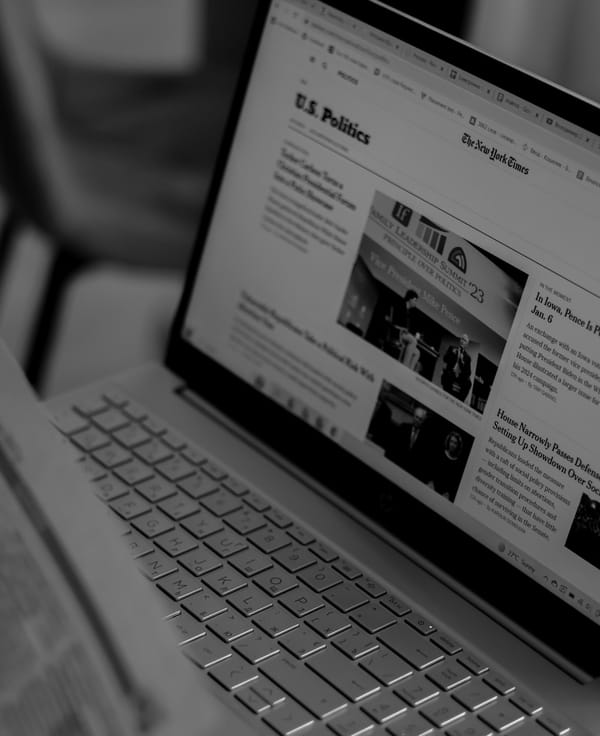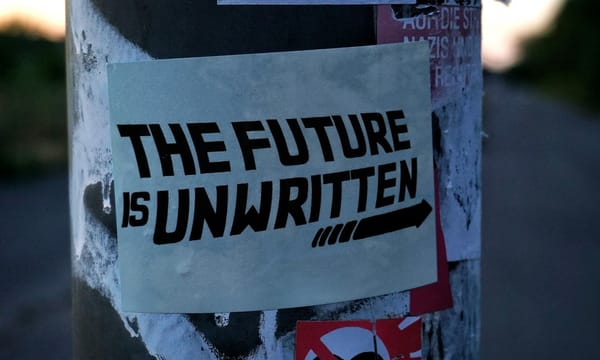AI Giants vs. the People: How Big Tech Is Rewriting the Rules on Free Speech, Copyright & Control
Behind closed doors and beneath vague policy statements, the biggest tech companies in the world are lobbying to reshape the legal and digital landscape, and they’re doing it under the banners of “freedom,” “innovation,” and “national security.” But this isn’t about protecting free speech.

Tech CEOs keep saying AI is the future. What they’re not saying is that they’re already rewriting the rules about who owns your words, who controls your newsfeed, and who decides what speech counts.
Behind closed doors and beneath vague policy statements, the biggest tech companies in the world are lobbying to reshape the legal and digital landscape, and they’re doing it under the banners of “freedom,” “innovation,” and “national security.” But let’s be clear: this isn’t about protecting free speech. It’s about controlling the platforms where speech happens, profiting from the content others create, and outsourcing responsibility for harm.
Welcome to the age of AI regulation, written by the regulated.
The AI Arms Race Is a Policy Power Grab
Earlier this year, The Information, a tech industry news site, reported that OpenAI has been quietly proposing policies to the Trump administration aimed at preserving U.S. dominance over China in the AI arms race. While The Information provides insider perspectives, its industry-centric focus means these developments often escape broader public scrutiny.
Behind the language of patriotism and “alignment,” OpenAI is pushing for a policy framework that solidifies its power over access, licensing, and infrastructure. One of the most telling details? They’re in talks with India’s Reliance Industries to run OpenAI models locally in India—ensuring data remains within national borders but still under OpenAI’s control.
This isn’t national security. It’s corporate imperialism, disguised as diplomacy.
The “License to Steal”: Copyright Doesn’t Apply (If You’re Big Enough)
OpenAI and Google are also trying to rewrite copyright law itself.
Both companies are lobbying governments to create legal carveouts allowing them to scrape and use massive volumes of copyrighted content—from journalists, authors, artists, musicians, and everyday internet users—to train their AI models without needing permission or paying royalties.
Publishers call it what it is: a “license to steal.” Tech companies argue that their AI tools are “transformative,” and therefore fair use—even though the outputs often mimic or directly paraphrase the original work.
Let’s be clear: if a small artist or journalist did this, they’d be sued into oblivion. But when trillion dollar companies do it in the name of “advancing AI,” they’re offered meetings with policymakers.
This isn’t innovation. It’s industrial-scale plagiarism, sanitized by lobbyists and branded as progress.
Meta’s Deepfake “Transparency”: Labeling Misinformation Still Spreads It
In response to growing concern about AI-generated political ads, Meta has rolled out a policy that requires political advertisers to label content altered or generated by AI. Sounds good, right?
It’s not. Because:
- The labels are self-disclosed.
- There’s no reliable enforcement.
- Most users won’t notice—or understand—the labels anyway.
Meta knows this. But transparency isn’t the point. Plausible deniability is. As long as they can say they’ve warned users, they can keep profiting from political disinformation without consequences. The result? You scroll past a synthetic video of a political figure saying something they never said, and your brain doesn’t register the tiny “AI-generated” disclaimer in the corner—if it’s there at all.
Meta doesn’t care if it’s real. They care if it goes viral.
Case in point: Russian President Vladimir Putin’s regime has been documented using deepfake technology to create political propaganda, manipulating public perception both domestically and internationally. Meta’s lax labeling policies do little to prevent similar tactics from influencing democratic processes elsewhere.
Global Pushback? Big Tech Doesn’t Want That
Governments outside the U.S. are starting to push back. Australia, for example, is exploring digital regulations that would restrict the spread of harmful content and place more responsibility on platforms.
In response, U.S. tech giants are crying censorship. They frame these efforts as attacks on “free expression,” while spending millions lobbying against meaningful regulation.
Let’s pause on that irony: the companies whose algorithms bury independent media and amplify outrage for profit are now positioning themselves as defenders of free speech.
They don’t want a freer internet. They want a friendlier policy environment—one where they get the benefits of being publishers, platforms, and infrastructure providers without any of the accountability.
The Hypocrisy Runs Deeper
While tech giants decry foreign regulations as threats to free speech, domestically, political figures like President Trump openly attack media outlets and legal professionals, calling for punitive actions against those who dissent. The same voices defending “free expression” are quick to silence opposition when it suits their agenda.
The Real Free Speech Crisis
This is what the free speech conversation keeps missing: it’s not about whether speech is allowed. It’s about who controls the stage.
Right now, that stage is owned by a handful of corporations who are:
- Collecting your personal data without explicit consent to train AI systems that can replicate or replace your creative and professional outputs.
- Moderating (i.e., controlling) your content with opaque algorithms that determine what you see and who sees you, without transparency or accountability.
- Writing the rules in back rooms with lawmakers who often lack technical expertise, leading to regulations that favor corporate interests over public good. For instance, tech companies have been actively involved in shaping AI policies to preempt stricter state regulations, thereby ensuring a more favorable federal framework.
And when they say they’re protecting free speech, they mean their own—not yours.
What You Can Do
This isn’t a lost cause, but it is a narrowing window. Here’s what matters now:
- Follow the lobbying trail. Pay attention to which policies Big Tech is funding. Resources like OpenSecrets can help you track lobbying disclosures.
- Support lawsuits and advocacy organizations fighting to protect artists, authors, and journalists from unauthorized AI scraping.
Consider supporting:
- Authors Guild – suing OpenAI for unauthorized use of literary works.
- Fight for the Future – leading AI policy and digital rights campaigns.
- Creative Commons – providing tools for creators to protect content.
Push for real legislation. Call your U.S. senators and representatives to support bills that:
- Restrict scraping of copyrighted material without consent.
- Mandate clear, enforced AI transparency standards.
- Strengthen data privacy at the federal level.
- You can find your representatives
Sources
- Authors Guild. (n.d.). Open letter to AI developers. Retrieved March 22, 2025, from https://www.authorsguild.org/
- The Verge. (2025, March 20). OpenAI and Google lobby to shape AI rules as regulation looms. Retrieved from https://www.theverge.com/policy/632174/openai-trump-proposal-regulation
- Creative Commons. (n.d.). Global affiliates. Retrieved March 22, 2025, from https://creativecommons.org/about/global-affiliates/
- Fight for the Future. (n.d.). Campaigns and digital rights advocacy. Retrieved March 22, 2025, from https://www.fightforthefuture.org/
- OpenSecrets. (n.d.). Tracking money in politics. Retrieved March 22, 2025, from https://www.opensecrets.org/
- Politico. (2025, March 20). White House law firm sanctions spark backlash from legal community. Retrieved from https://www.politico.com/news/2025/03/20/white-house-law-firm-sanctions-026866
- Reuters. (2025, March 18). Meta vows to curtail false content, deepfakes ahead of Australia election. Retrieved from https://www.reuters.com/technology/meta-vows-curtail-false-content deepfakes-ahead-australia-election-2025-03-18/
- The Information. (2025, March 22). OpenAI proposes policy framework to Trump administration to ensure AI dominance. [Subscription required]
- The Intercept. (2025, March 21). Trump’s attack on ICE whistleblower sparks free speech lawsuit. Retrieved from https://theintercept.com/2025/03/21/trump-free-speech-lawsuit-ice-momodou-taal/



